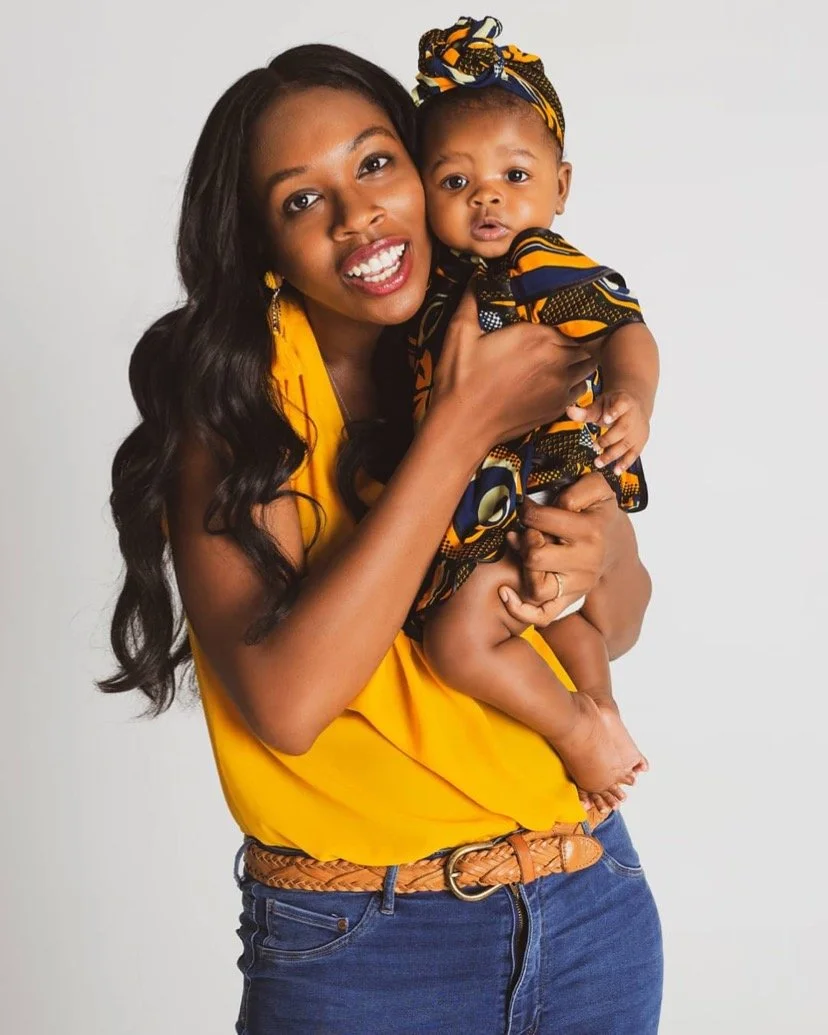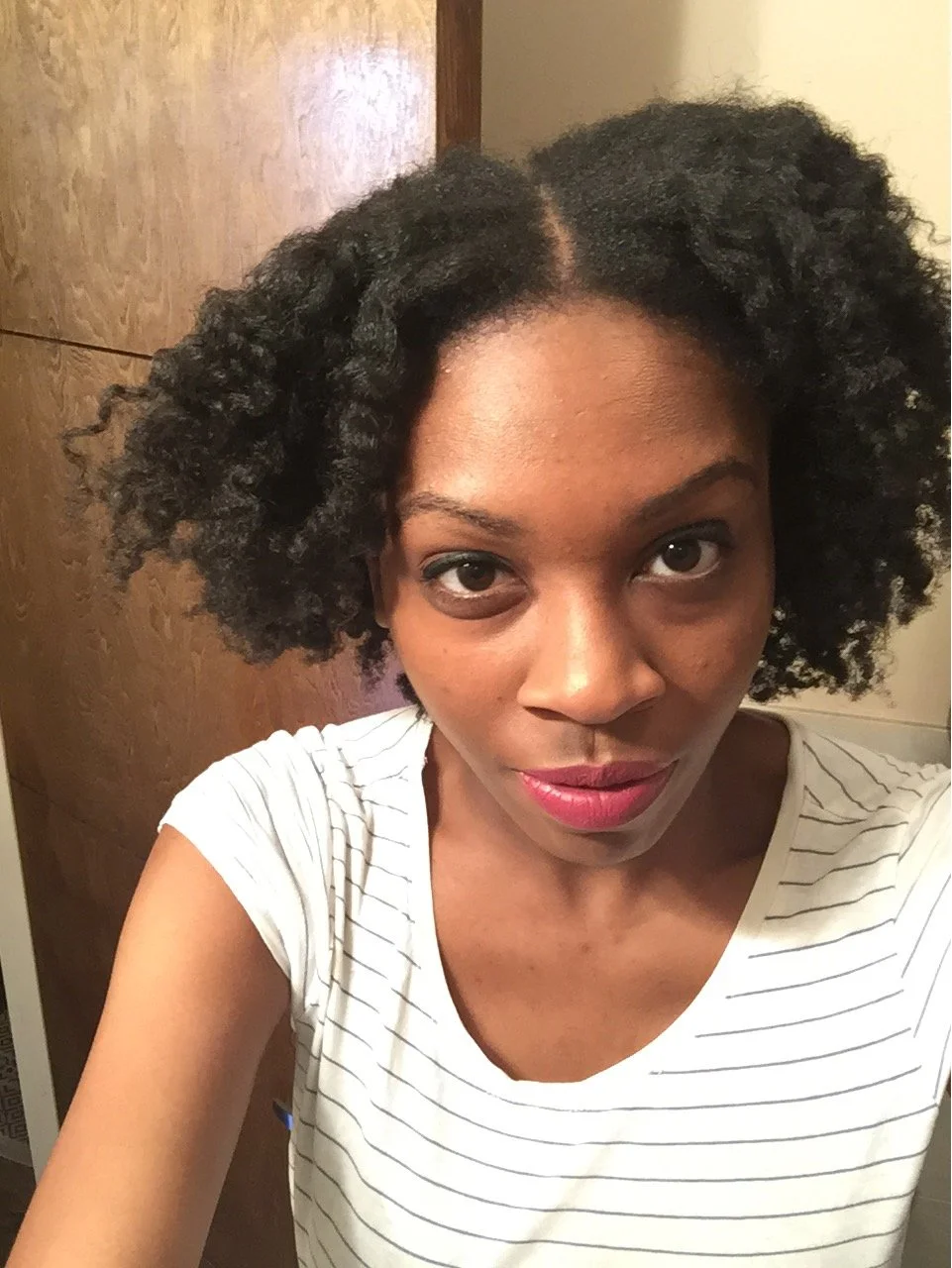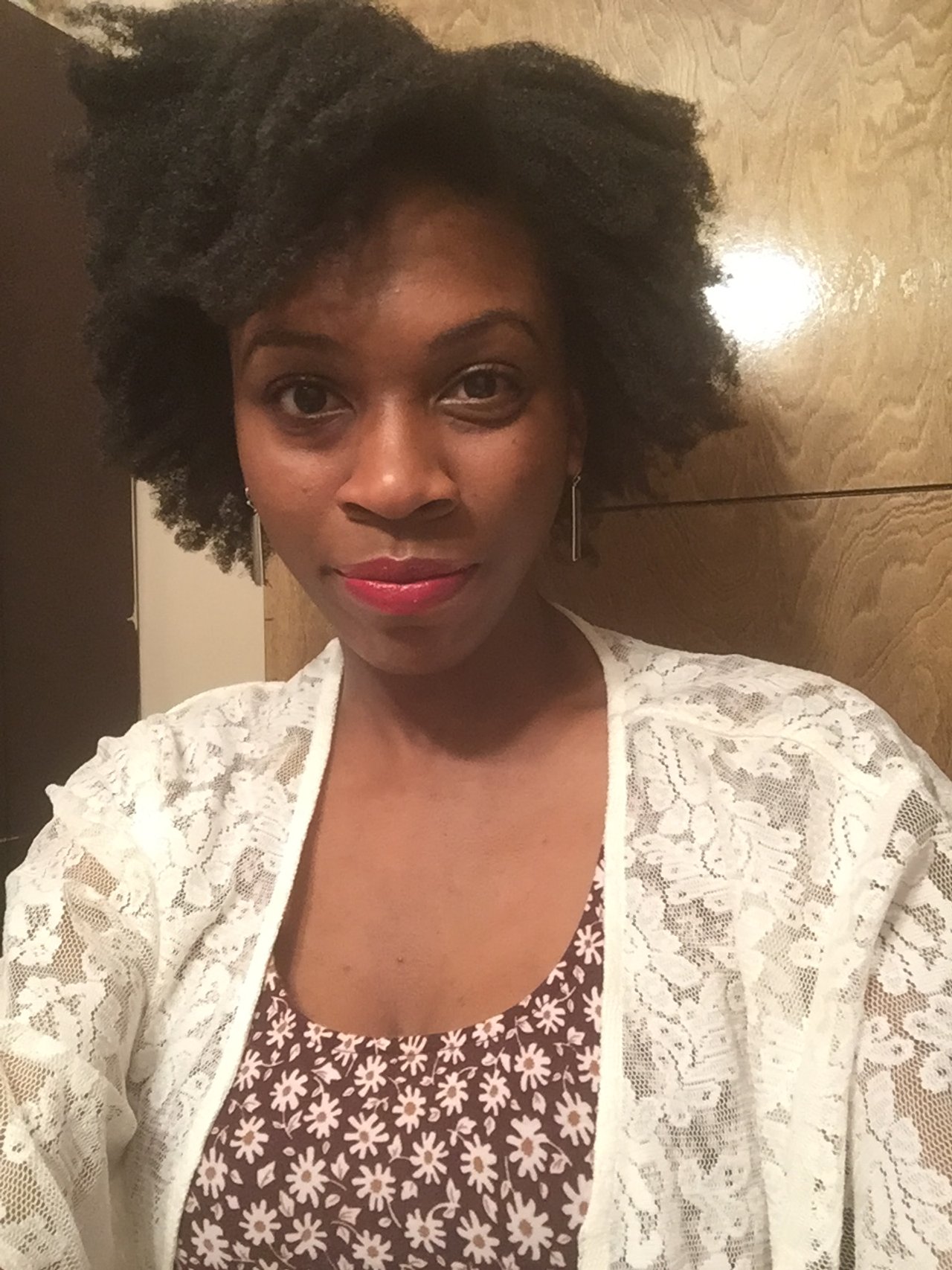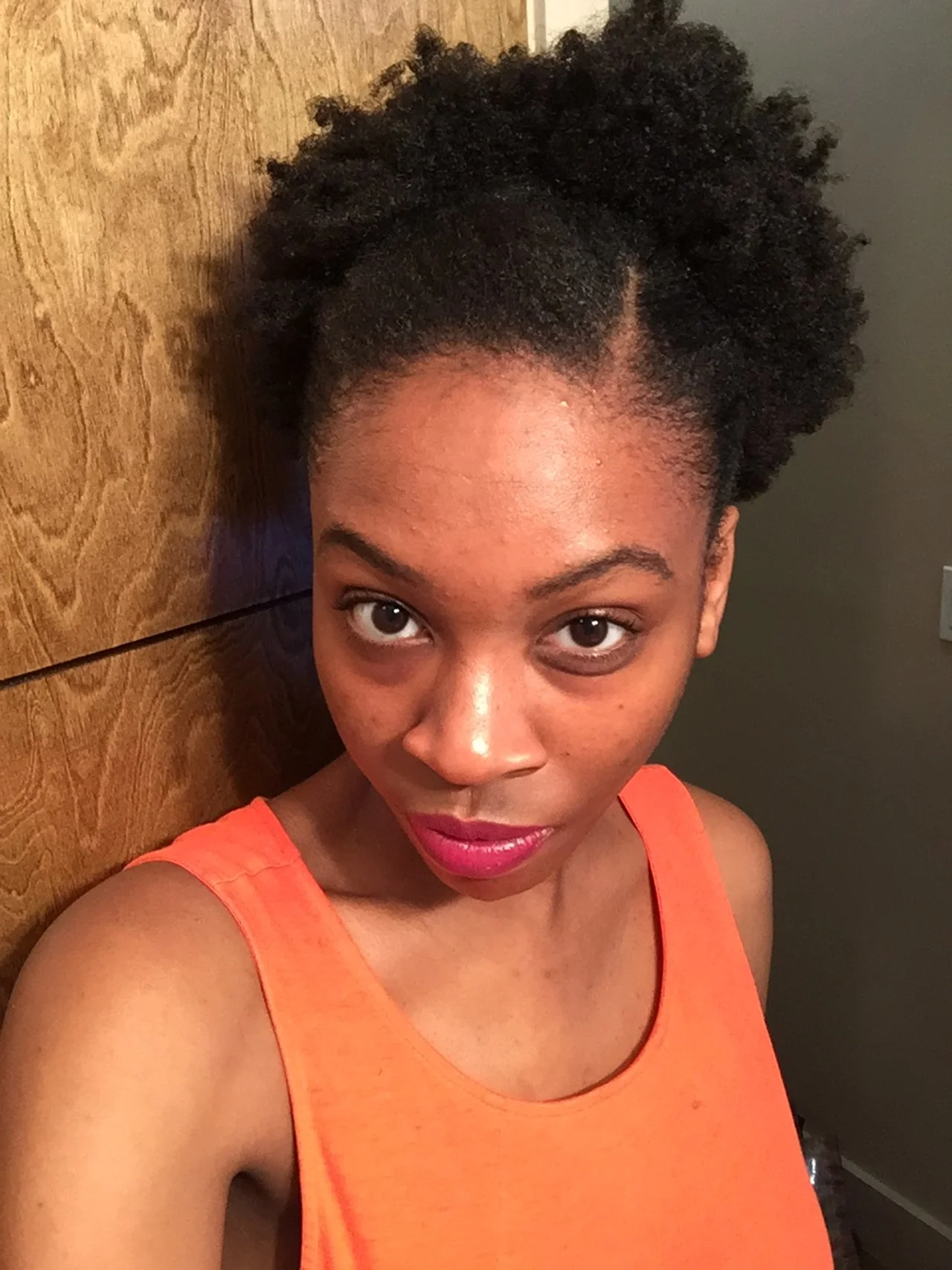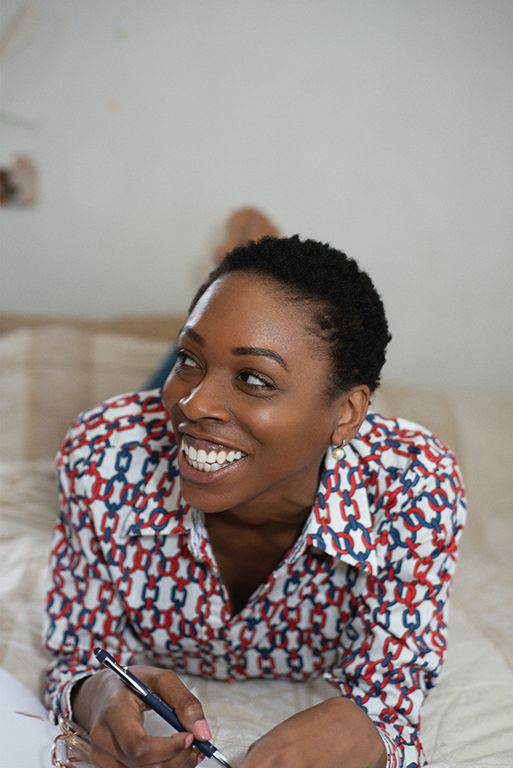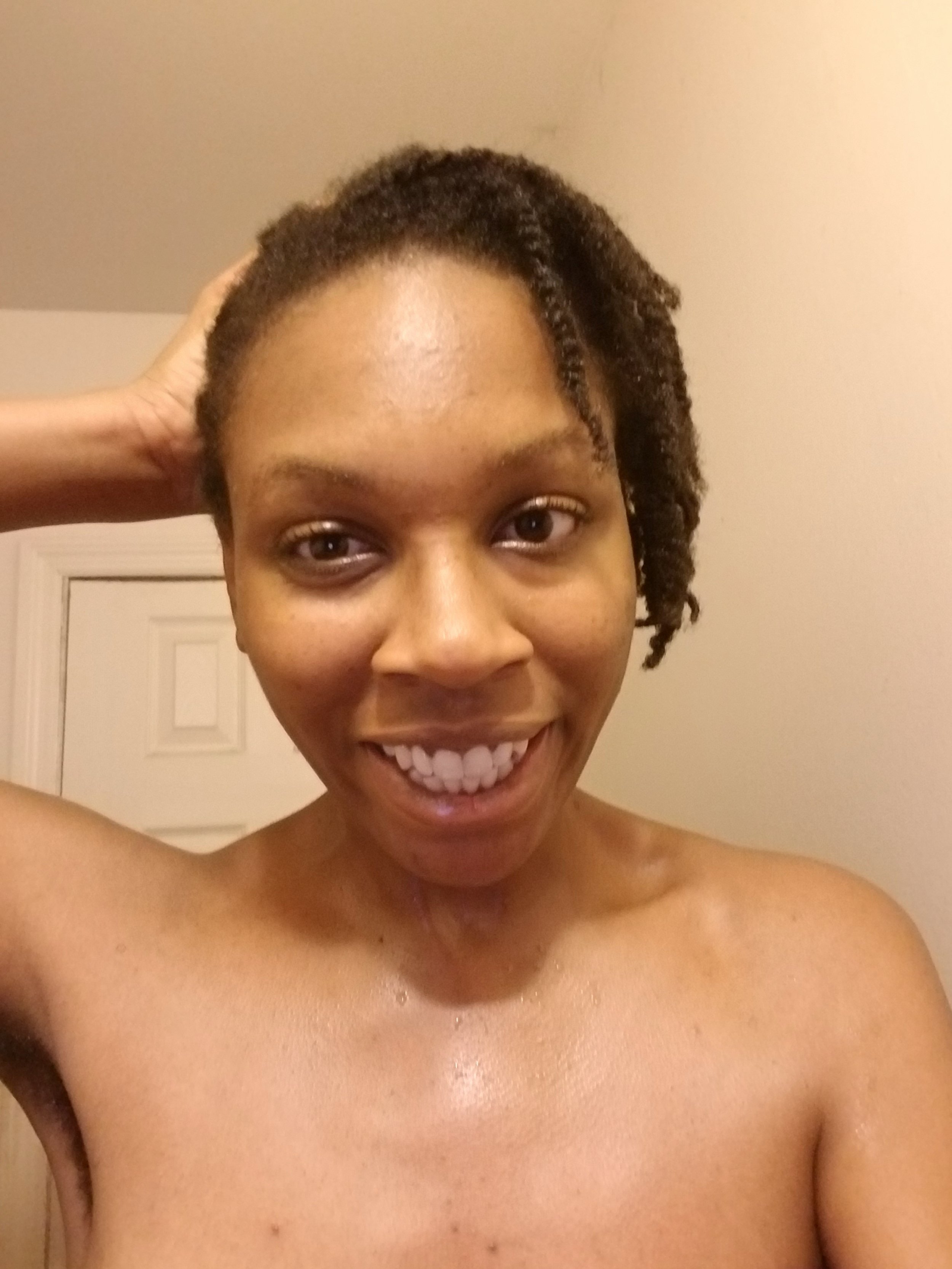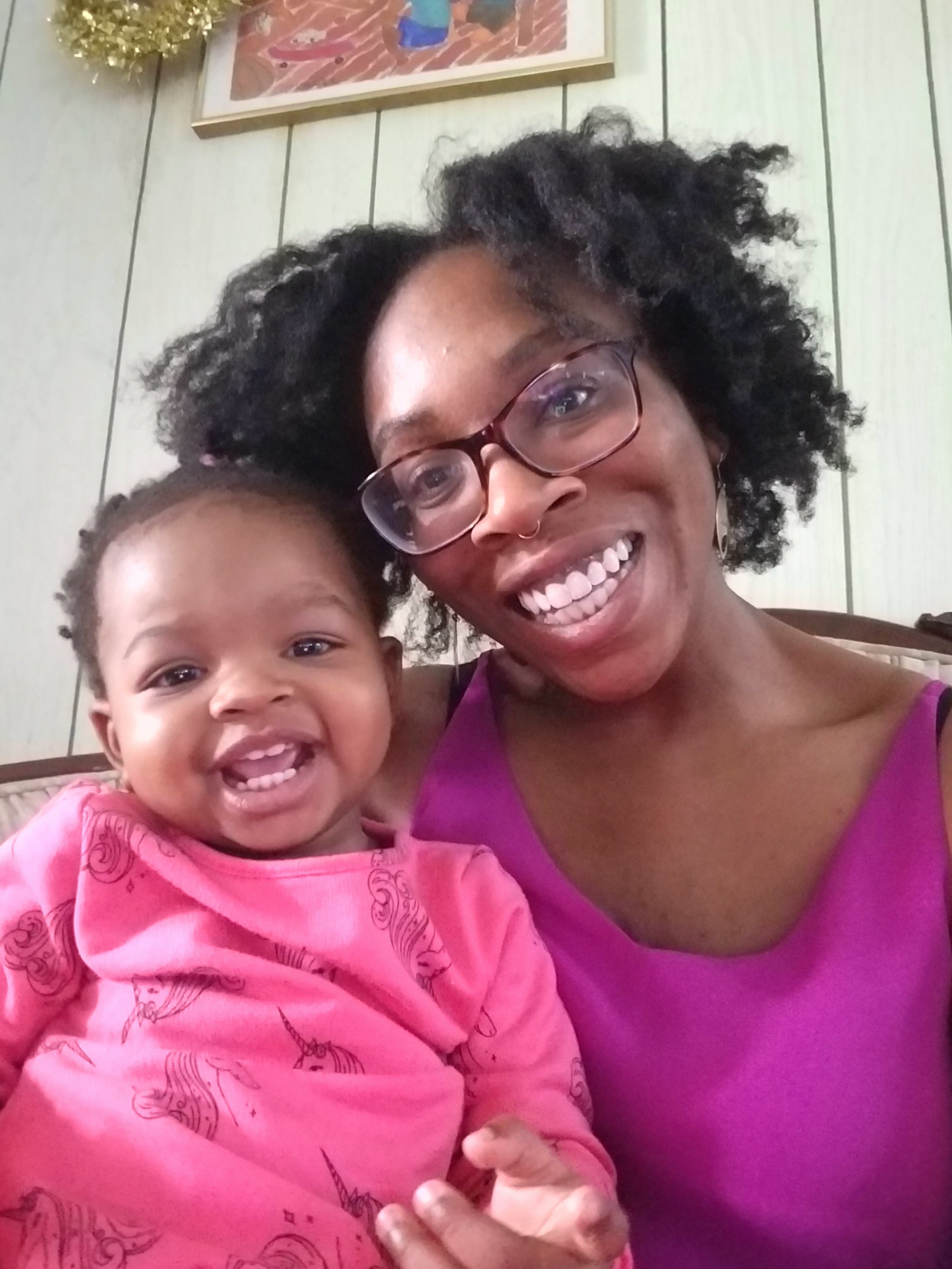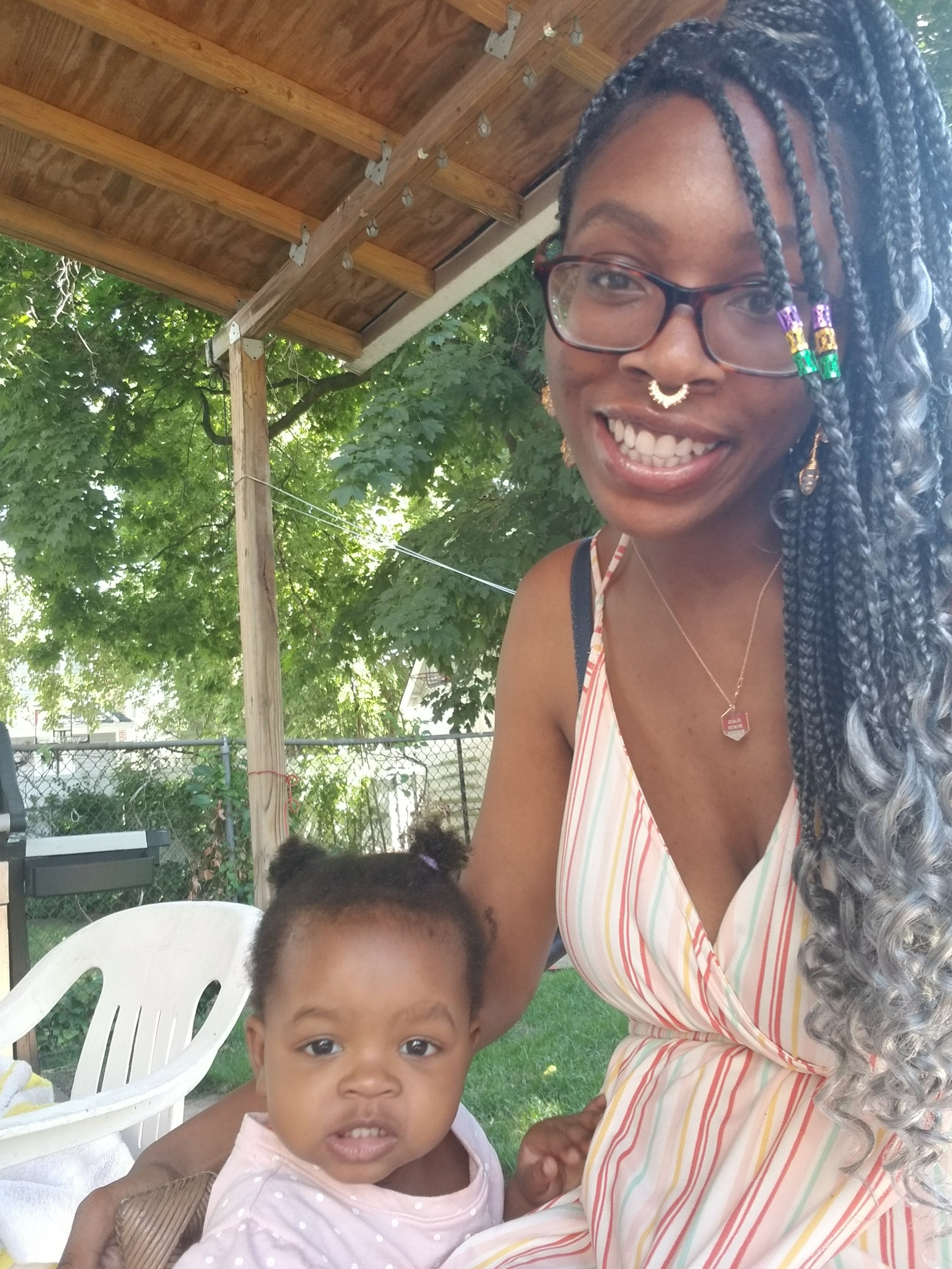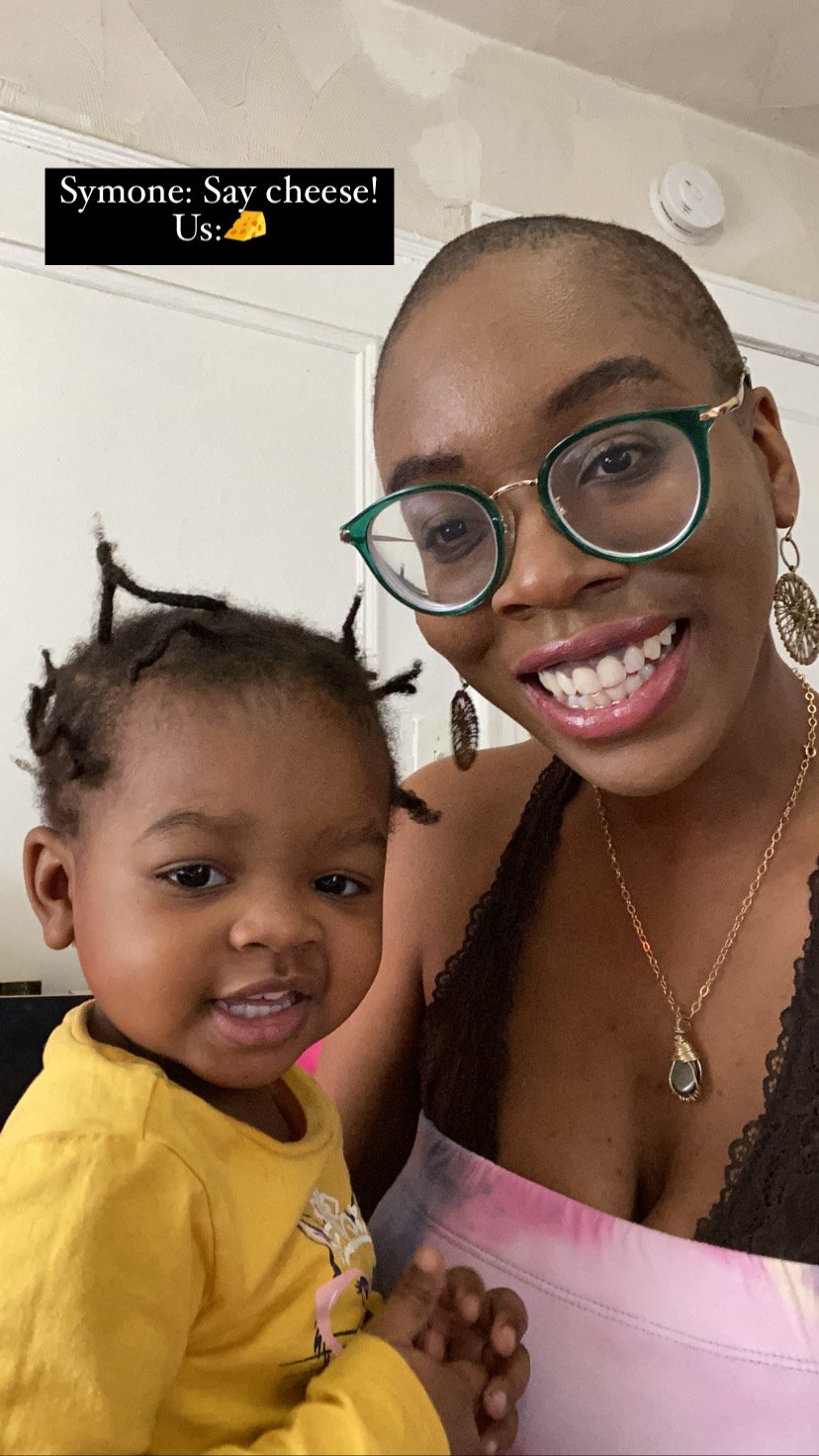Hair Trauma is Real: What Motherhood is Teaching Me About Black Hair
Photo Credit: Vonecia Carswell
It’s time to style my daughter’s hair. Once I start touching her hair, loosening out the old style of two puffs twisted into mini buns, and reach for a comb, she already gets the message loud and clear. She makes a run for it. Two laps around the living room, in and out of the kitchen, down the hall, and into her bedroom. I call her name, attempt to chase, but I give up, already resigned. Maybe I’ll catch her by surprise when she’s watching Peppa Pig. If I do manage to get a chance to start braiding, there will likely be crying, no matter how gentle I try to be. I’ll probably have to get some chocolate to bribe her into staying still. I find myself thinking, “Why can’t she sit still and just suck it up? This is a Black girl rite of passage. We all have to endure the pains that come with “getting your hair done”. We’ve been taught there’s a certain amount of discomfort, from the tight pull of a braid to the burn of a relaxer or hot comb, that is to be expected. We suffer for beauty, and yet we’re still criticized and politicized for the choices we make when it comes to our hair. As a mental health advocate, I couldn’t help but wonder what impact this emotionally fraught hair styling session could have on my daughter in the long term.
The natural hair movement has recently been called out on Twitter for criticizing women for relaxing their hair while also showing images of looser hair types as the ideal in natural hair beauty. Rarely are type 4 and kinkier hair types are shown as a healthy ideal. Many women spend hundreds of dollars going through products and hair care tools, only to be disappointed by fizzled-out twist-outs, shrinkage, and hours of hair maintenance depending on the length. Having your curls pop or be defined became the goal, and for many with undefined curl patterns or several different curl patterns on their heads were just out of luck. For many, this is just another stop on the train of hair trauma that Black women experience from a young age.
As I navigate my daughter’s hair journey and reflect on my own, I realized that there is a longstanding history of hair trauma, not just within my family but many others. I remember crying while getting my hair braided and being told that I was too sensitive. Moving my head wrong could result in excruciating pain or worse yet an annoyed whack on the head from the hairdresser (usually my mom). I became desensitized after a while, but hair care always carried some sadness and pain. I remember getting microbraids in the age of Brandy and Moesha. When I was ready to take the style out, at least the last 3 rows of hair on the back of my head were gone with the braids. I remember my mother rubbing carrot oil on the back of my head, reassuring me that it would grow back. I started relaxing my hair in middle school. Although my hair is kinky (proud 4c here!), it's also fine and fragile, so although my strands could lay flat with the best of them, I was also struggling with damage on my ends. The heat styling didn’t help. Having short hair as a young Black girl was something that made me and many others the object of ridicule, often being compared to Latina or Indian girls with long hair. It was believed that Black girls couldn’t grow long hair, but the truth of it was that we had been shamed and traumatized out of loving and caring for our natural hair texture. Like our very existence as Black women, our hair was labeled as difficult and hard to love.
After years of braided protective styles, weaves, and relaxers, I finally went natural in 2014. I did the big chop, cutting off my relaxed ends, and started tending to my natural curls like plants in a garden. For a while, I was obsessed with this new concept of loving my natural hair. I bought a bunch of products - Denman brushes, curl rods, every kind of butter, hair pudding and leave-in spritz. With all of that gentle love and care, my hair started to grow longer. That’s where the real challenge began because as much as the natural hair community praises long natural hair, nobody talks about how difficult it is to maintain long natural hair, especially with kinkier hair textures. I would spend hours with my arms aching as I detangled my coily tresses. I found myself going back to protective styles, especially braids which are my favorite. The fact was that I just didn’t feel like styling my hair every day or staying up late at night to make sure I finished twisting my hair so I could untwist it in the morning with hit or miss results.
Eventually, I ended up cutting it all off. The first time, I went to a barber in Bedstuy, Brooklyn who asked me if I was sure before he put the clippers to my head. Although my hair was the longest it had ever been, I was completely over the naturalista experience. “Take it off,” I told him. I got a fohawk that day and enjoyed styling that patch in the middle of my head until the sides started growing in again, at which time, I cut it all off.
One group of naturals who I see thriving are those who chose to loc their hair and fell in love with their locs. I’ve attempted to loc my hair several times, but I think I enjoy switching up my hairstyle so often that it’s hard for me to be still long enough for my hair to loc up! One day, but for now, I’m focused on ending the cycle of trauma and shame associated with Black women’s hair. I’m choosing low manipulation styles for my daughter so she doesn’t have to associate getting her hair done with pain and tears.
Actress Gabrielle Union recently commented on the criticism she received about her daughter’s hair stating, “I’m certainly releasing my kids from that [need to appease white beauty standards]. I want them to be the best versions of themselves without centering Eurocentric beauty ideals and the white gaze, and white validation,”
So no, my daughter’s hair may not always be pulled tight and silky sleek, her “kitchen” and edges may look “nappy” to some people, but I know her hair is clean, moisturized, and taken care of. Most importantly, she can play freely. She can jump in a pool or sweat in the sun without worrying about her natural curls showing through because it’s already a celebrated part of who she is.
I love that so many new books are coming out teaching black children to love their hair. The Oscar-winning short “Hair Love” is a shining example of the representation that now exists so that the hair angst that myself and many other Black women experience as we come of age, doesn’t have to continue.
As women, we need to start supporting each other and stop judging other women for how they choose to wear their hair, especially because we are often holding up patriarchal standards of what is appealing. We didn’t like it when Monique started to instruct Black women not to wear bonnets in public, why? Because we as Black women deserve bodily autonomy. We need to remember our role as Queens and matriarchs before we were enslaved and told to hide our hair before laws were passed forcing us to cover our hair, before billion-dollar industries could rise on the backs of us not loving our hair.
If our ultimate goal is freedom and liberation, we have to give each other the freedom to know what works for each of us individually according to our lifestyle. If we truly want to break beauty standards and redefine beauty, we have to stop enforcing European beauty standards on each other within the Black community and continue to show up as ourselves fully in all spaces with no shame about how we choose to wear our hair. Also, don’t let any industry program you on what’s beautiful and what isn’t. The standards that hurt us growing up don’t need to hurt the next generation.

